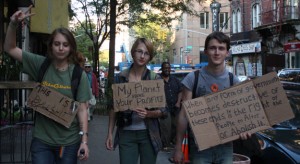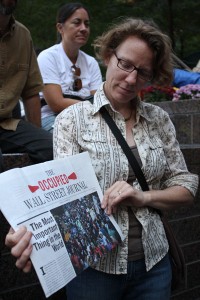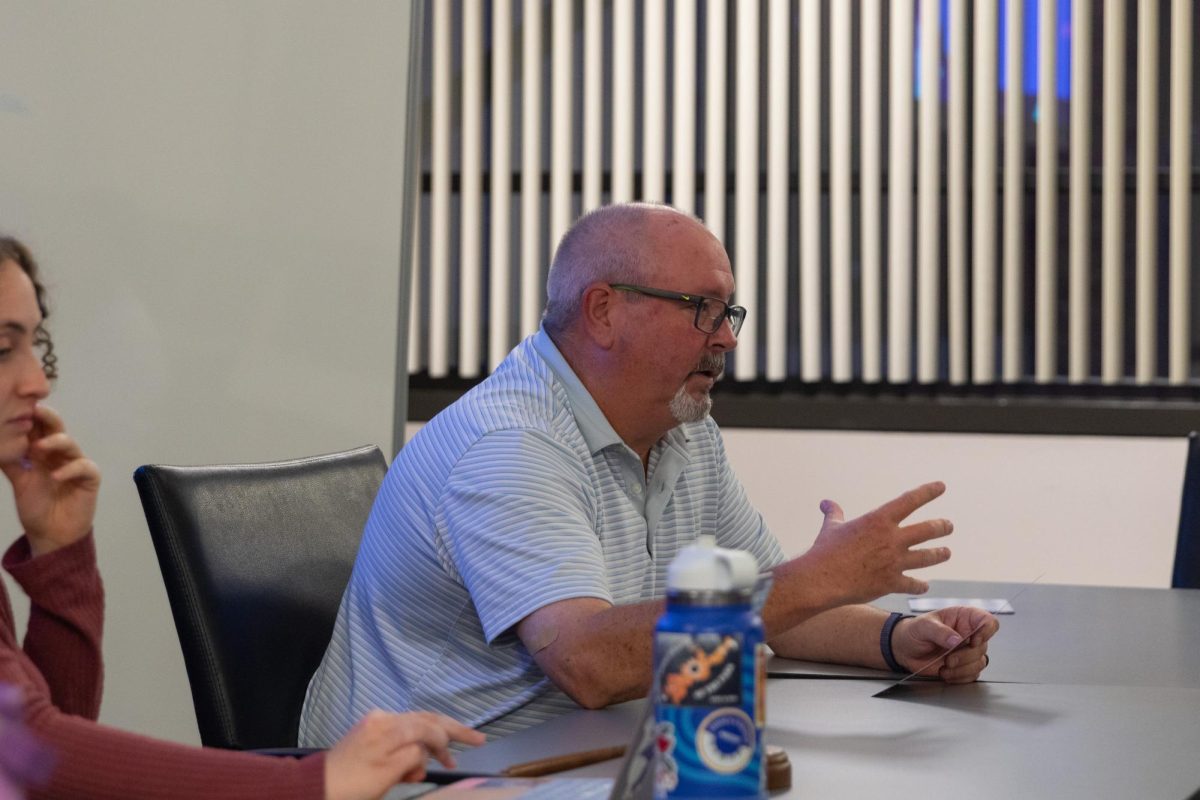Ithacans are moving beyond the local level to join the national Occupy Wall Street protest.

Last weekend, more than two dozen students, professors and residents from the Ithaca area joined the burgeoning movement in New York City.
Across the country, citizens who are upset with the current state of the government are coming together in major cities to protest “the greed and corruption of the 1 percent.”
The protest has been gaining ground in cities such as Austin, Texas, Washington, D.C., Seattle, Boston and even in Ithaca. Last week, more than 250 locals protested on the Commons.
New York City protesters on Saturday held signs and marched through the streets shouting “People’s Needs, Not Corporate Greed!” and “We are the 99 percent!”As the protest entered its fourth week, more than 20,000 supporters have flocked to Zuccotti Park and other areas of the financial district in New York City.
The movement has been strengthened through social networks such as Twitter and Facebook.
Kelly Dietz, assistant professor of politics at the college, lent her support at the protest Saturday.
“In some ways the protests are similar to the early tea party actions a couple of years ago,” Dietz said. “Both reflect deep frustrations about current circumstances and about not being heard and a lack of trust in political parties and mainstream media to represent their voices.”
Ryan Karins, a senior at Cornell University, said he was excited to participate in such a huge movement.
“It’s just going to keep happening, so as long as it keeps happening, it’s going to keep growing,” he said. “It seems like something that’s growing — and it doesn’t seem that it’s stopping.”
Ithaca College sophomore Charlotte Butler said she supports the ideals represented at the protests.
“I like the idea that it’s a personal thing,” she said. Everyone’s protesting for their own little reasons.”
A carpool, which left the Commons for New York City at 5 a.m. Saturday contained city residents and students from both the college and Cornell. Some locals traveled independently.
A group of students from the college arrived at Washington Square Park around 11 a.m. Several departments, including food and sanitation, formed to keep participants comfortable. Protesters created camping areas separated by cardboard boxes.
Hundreds of officers from the New York City Police Department patrolled the sidewalks. Other than clearing pedestrian traffic, contact between protesters and police was peaceful.
Steven Grant, an ex-marine from Austin, Texas, said this peace between police and participants was common.

“There’s no reason for us to get angry,” Grant said. “Cops never come through the park unless they’re high-ranking police officers. I saw two lieutenants coming through three mornings ago because people were putting cardboard walls up and erecting a structure that is illegal.”
However, incidents of police intervention at other events have made headlines nationwide. An Oct. 1 march on the Brooklyn Bridge led to the arrests of more than 700 protesters. Another 100 were arrested Tuesday in Boston.
Throughout the day, General Assemblies, mass makeshift meetings of demonstrators, were firing up members of the protest and spreading the word about issues and other events related to the movement.
But not everyone at the protest was there to support it, including Paul Abrahimian, who tried to reason with the protestors about what he saw as downsides to the event.
“Ultimately the world is very complicated and not so simple,” Abrahimian said. “At work have you ever eaten someone else’s sandwich from the fridge? Corruption in this world is a thing you can’t erase completely. It’s a conditional infraction.”
Dennis Kass, a teacher at Chicago’s Little Village High School, said he was there to represent his school’s massive cuts.
“They’ve actually reduced teacher pay by 4 percent while simultaneously giving the board 20-percent raises,” Kass said. “Most of the after-school programs are privately funded programs, so some of that has been cut as well.”
Jeff Cohen, director of the Park Center for Independent Media and associate professor of journalism at the college, was in New York City two weeks ago. He said he sees the protests stretching out for months.
“I hope people from Ithaca are taking up warm coats and blankets and other things that are needed,” Cohen said. “I don’t think it’s going to be over before the snow comes.”
Locally, students at the college and residents continue to organize their own protests. A walkout is scheduled for 4:30 tonight across campus, sponsored by Labor Initiative for Promoting Solidarity.
Cornell alumnus Daniel Schechter said he doesn’t plan on stopping anytime soon.
“I’m losing my voice,” Schechter said. “But I’m not losing my passion.”







